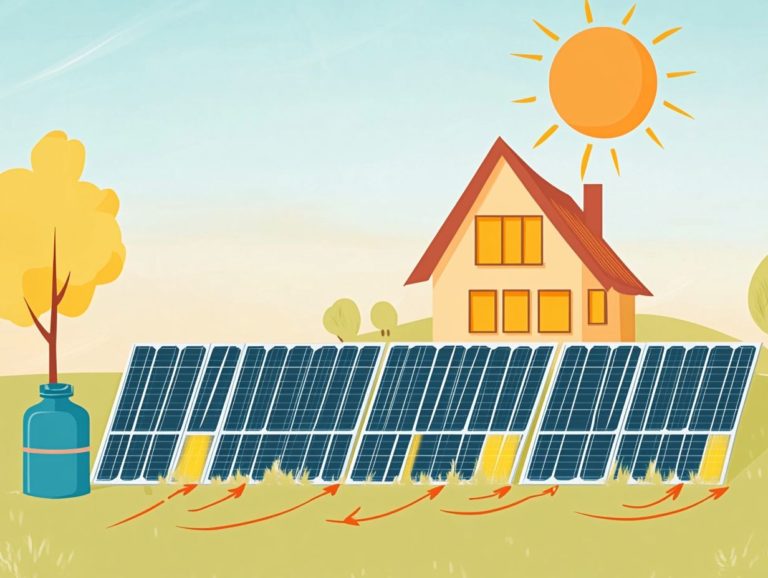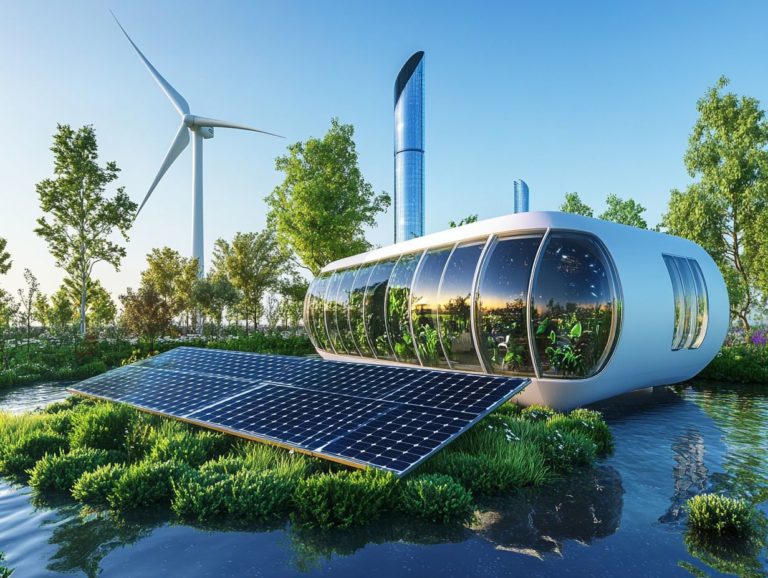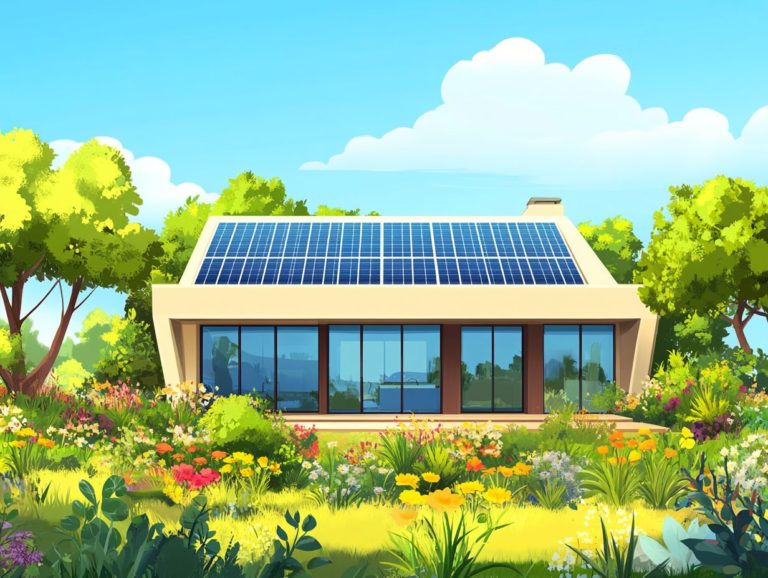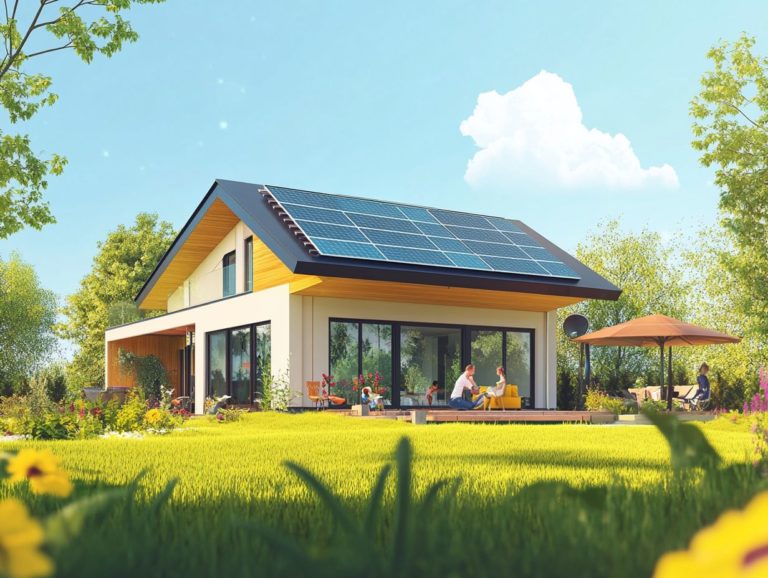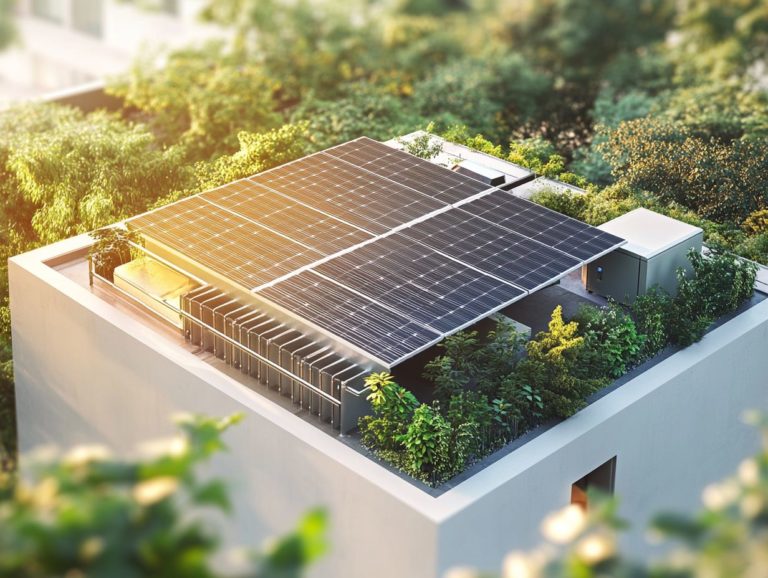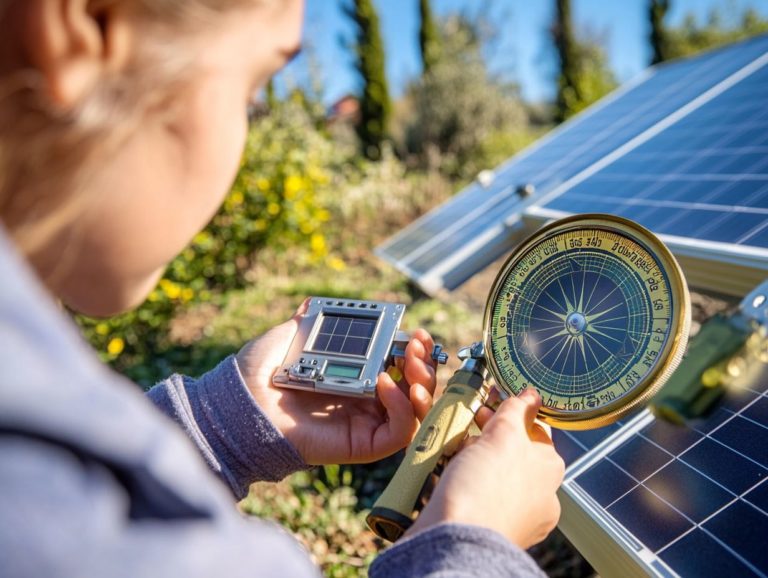“Choosing the Right Solar Panel for Your Home”
As the world embraces renewable energy, solar panels have emerged as a favored option for homeowners eager to harness the sun’s potential.
Understanding the fundamentals of solar energy and how these panels operate is crucial for anyone contemplating this eco-friendly path.
Your choice will be influenced by factors such as location, climate, and your specific energy needs.
With various panel types, installation options, and potential financial incentives, navigating the solar landscape might seem daunting.
This guide will equip you with essential information to make a well-informed decision about integrating solar panels into your home.
Contents
- Key Takeaways:
- The Basics of Solar Panels
- Factors to Consider Before Choosing a Solar Panel
- Types of Solar Panels
- Installation and Maintenance
- DIY vs. Professional Installation
- Incentives and Financing Options
- Frequently Asked Questions
- What factors should I consider when choosing the right solar panel for my home?
- What are the different types of solar panels available for residential use?
- How important is panel efficiency when choosing the right solar panel for my home?
- What is the average lifespan of a solar panel?
- How do I determine how many solar panels I need for my home?
- Can I install solar panels on a flat roof?
Key Takeaways:
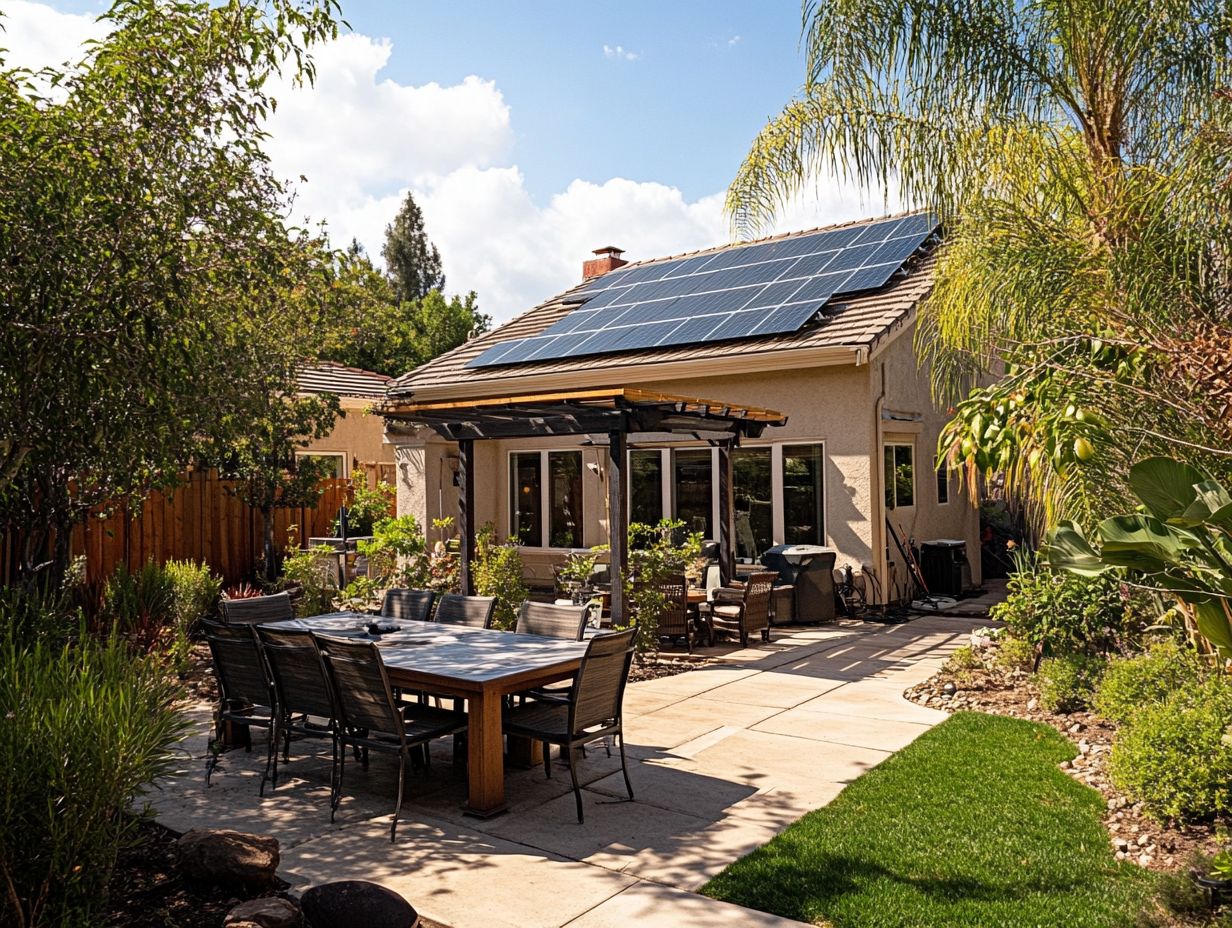
- Understand how solar energy works and the basics of solar panels.
- Consider factors such as location, climate, energy needs, and budget when choosing the right solar panel for your home.
- Know the difference between types of solar panels and the options for installation, maintenance, and financing.
The Basics of Solar Panels
Grasping the fundamentals of solar panels is essential for anyone starting a solar power journey. Solar panels, made primarily from photovoltaic cells (the devices that convert sunlight into electricity), play a pivotal role in energy production while championing renewable energy initiatives.
These systems meet your energy needs. They can also lower your electricity bills, leading to significant savings. By investing in high-quality solar panels, you re choosing cost-effective solutions that promise durability and reliable performance, solidifying their status as a crucial element of modern energy solutions.
Understanding Solar Energy and How Panels Work
Solar energy harnesses the power of sunlight through photovoltaic cells. These cells operate based on the principle of converting sunlight into electricity. When sunlight strikes the surface, it excites electrons within the semiconductor material, typically silicon. This process energizes the electrons, prompting them to flow and generate an electrical current. As sunlight continues to engage with the cells, even more electrons are liberated, significantly boosting energy production.
The captured energy is then converted into usable electricity, enabling you to enjoy the numerous benefits of solar power. Ongoing advancements in technology are enhancing the efficiency of these cells, ensuring you can maximize the potential of this renewable energy source.
Factors to Consider Before Choosing a Solar Panel
Before you invest in solar panels, it s essential to consider several factors to ensure they meet your energy needs and budget.
Your geographical location significantly influences sunlight exposure, which directly affects the efficiency and energy production of solar panels. By understanding the various types of solar panels and their distinct benefits, you can make an informed choice that aligns perfectly with your unique circumstances.
Location and Climate
Your geographical location and climate profoundly impact the efficiency and energy production of solar panels. For instance, regions with abundant sunlight, like the Southwestern United States, can truly optimize their solar energy output, racking up over 1,700 kilowatt-hours per kilowatt of installed capacity each year.
In contrast, if you find yourself in areas with persistent cloud cover, such as the Pacific Northwest, you might only see around 1,200 kilowatt-hours annually under similar conditions. Temperature is also crucial; solar panels tend to operate more efficiently in cooler environments, meaning that local weather patterns can significantly affect overall system performance.
Local climate variations, including humidity and seasonal fluctuations, also play a vital role in determining how much solar energy you can harness. Understanding these factors is essential when considering your solar investments.
Don’t miss out on the opportunity to harness the sun s power for your home! Consult with a solar panel expert or request a quote today!
Energy Needs and Budget
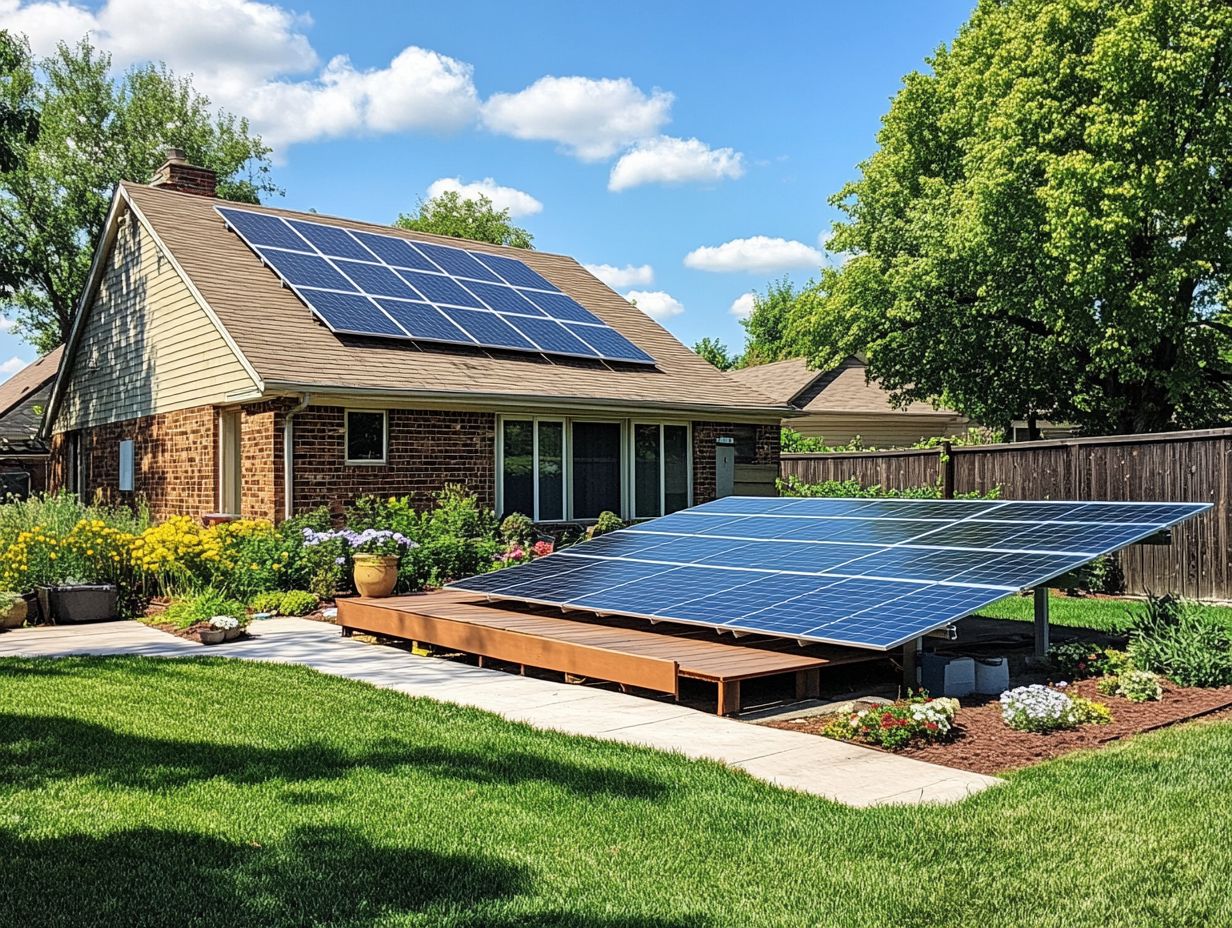
Evaluating your energy needs and budget is essential when considering installing solar panels. Understanding your annual energy consumption provides invaluable insights into the appropriate system size.
This tailored approach aligns with your consumption patterns and budget limits. It clarifies potential savings on your energy bills and emphasizes the environmental advantages of switching to renewable energy.
Explore various solar panel costs available in the market, as these can fluctuate based on brand, efficiency, and technology.
If you’re hesitant about upfront expenses, there are many financing options, such as solar loans and lease agreements. These can help manage initial investments while paving the way for long-term savings.
Types of Solar Panels
You ll find a variety of solar panels available, each offering distinct characteristics and applications.
Among these are:
- Monocrystalline
- Polycrystalline
- Thin-film solar panels
Each type is tailored to meet different energy needs and preferences.
Monocrystalline vs. Polycrystalline
Monocrystalline and polycrystalline solar panels are the two most prevalent types. Each offers unique advantages and disadvantages regarding efficiency and cost-effectiveness.
Monocrystalline panels are renowned for high efficiency rates. They generate more power in confined spaces due to their single-crystal structure, making them ideal for those with limited roof space.
On the other hand, polycrystalline panels, made from multiple silicon crystals, are often less expensive to manufacture. This leads to lower prices for consumers, but their efficiency ratings tend to be lower, which can impact overall energy output.
Consider climate, budget, and energy needs when choosing between these options to ensure a well-informed decision.
Thin Film vs. Traditional Panels
Thin-film solar panels present a distinct alternative to traditional options, boasting unique characteristics that may align perfectly with your specific needs.
These panels are typically lighter and more flexible, enabling installation on surfaces where conventional panels might be cumbersome. Unlike rigid silicon panels, thin-film options can conform to curved or textured surfaces, offering remarkable versatility.
While they allow for easier installation and transport, keep in mind that thin-film panels usually have lower efficiency rates. This means you may need more space to generate the same amount of energy.
This creates a balanced equation of pros and cons: traditional panels generally excel in maximizing energy output in confined areas, while thin-film technology shines in situations that demand adaptability and aesthetic integration.
Installation and Maintenance
Proper installation and ongoing maintenance are essential for the longevity and performance of solar panels. Attention to detail ensures they consistently meet energy production and efficiency goals.
By prioritizing these aspects, you can maximize the benefits of your solar investment for years to come.
DIY vs. Professional Installation
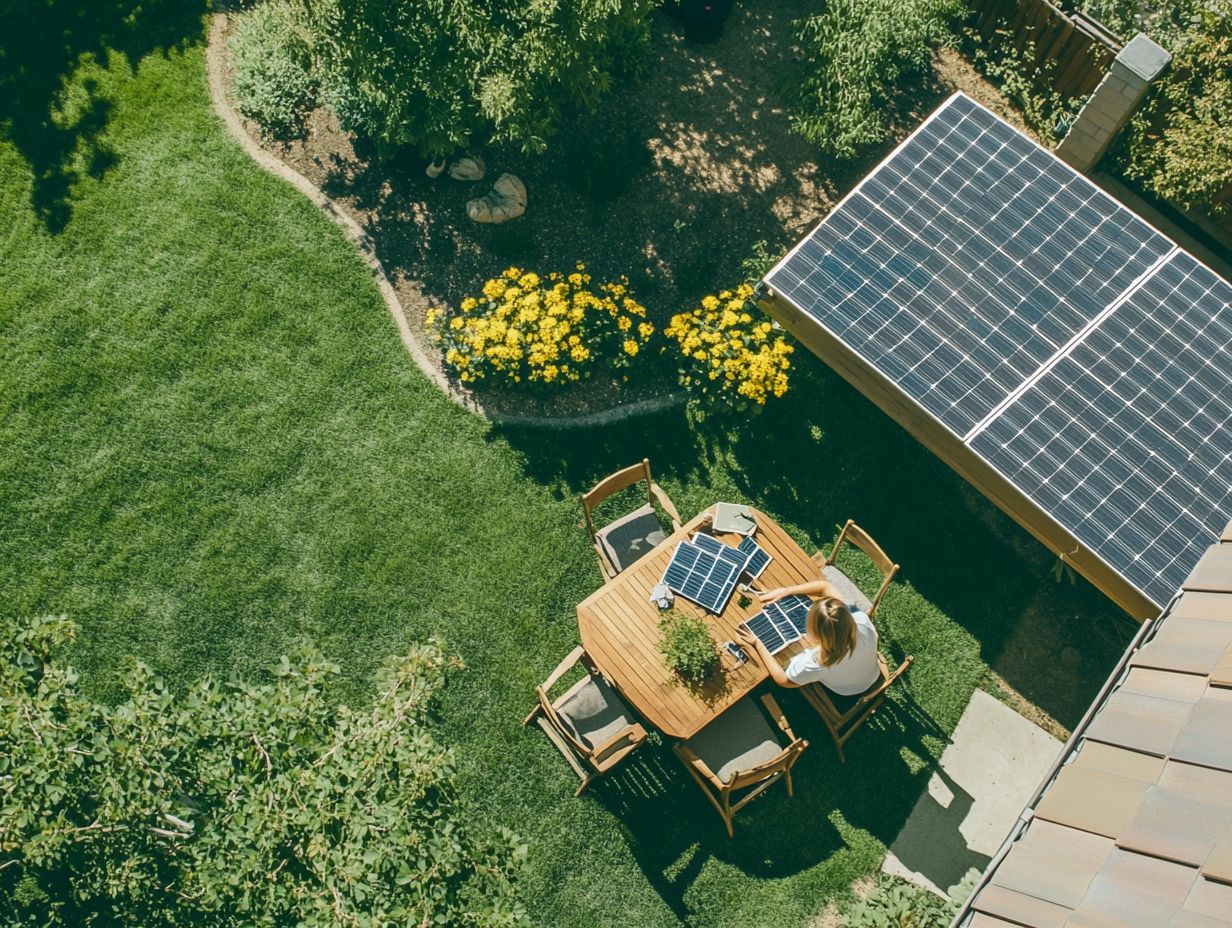
When you’re considering solar panel installation, you need to weigh the options between tackling it yourself or bringing in the professionals.
The DIY route might catch your eye, especially with the promise of savings! Fewer upfront costs and the thrill of a hands-on project can be quite enticing for those with a knack for technical work. However, this path isn t without its challenges. Ensuring your installation meets local rules that dictate how buildings should be constructed and maximizing the efficiency of the panels can be a juggling act.
On the flip side, hiring professional installers offers a wealth of expertise. They guarantee efficient and timely installations, along with warranties that cover any potential hiccups. For the best outcomes, it s essential to choose certified installers. Their knowledge can significantly impact the performance and longevity of your solar system, ultimately ensuring that your investment pays off in the long run.
Maintenance Tips for Optimal Performance
Want to keep your solar panels working like new? Regular maintenance is crucial to ensure your solar panels operate at peak performance and deliver optimal energy production.
Start with routine inspections to look for dirt buildup, debris, or any shading issues that might obstruct sunlight absorption. A good cleaning, perhaps with a gentle wash or specialized cleaning solutions, can significantly enhance your energy output.
Utilizing a dedicated app or monitoring system allows you to track performance. This helps you spot any discrepancies or drops in production swiftly, so you can act before issues escalate. Act now to protect your investment and ensure maximum energy production!
By dedicating a bit of time to these maintenance practices, you ll not only boost efficiency but also extend the lifespan of your robust solar system, ensuring it continues to generate energy for many years ahead.
Incentives and Financing Options
Exploring incentives and financing options is essential for enhancing the accessibility and affordability of solar energy for consumers. By understanding these avenues, you can unlock opportunities that make this sustainable choice not just viable but also economically beneficial. Check out local programs today to maximize your savings!
Tax Credits and Rebates
Tax credits and rebates serve as powerful financial incentives that can significantly lower the overall cost of installing solar panels. These incentives are tailored to your location and aim to motivate both homeowners and businesses to embrace renewable energy sources.
For example, federal tax credits allow eligible participants to deduct a substantial percentage of their installation costs from their federal income tax. Many states and local governments offer rebates that further enhance your upfront savings. Eligibility typically hinges on factors such as the size and type of your solar system, as well as whether the installation adheres to specific guidelines.
By making solar energy more financially accessible, these programs not only encourage investments in green technology but also enable you to enjoy considerable savings on your electricity bills over time.
Lease vs. Purchase Options
When considering solar panels, you often find yourself at a crossroads: should you lease or purchase the system outright? This choice can profoundly influence not only your immediate costs but also your long-term savings.
Leasing typically requires little to no upfront investment, making it an appealing option for those eager to embrace solar energy without the financial strain of a full purchase. However, this leasing arrangement usually comes with monthly payments, meaning you might miss out on valuable tax credits and incentives that are often available when you opt to buy.
On the other hand, purchasing a solar system involves a significant initial outlay, but it allows you to eliminate energy bills over time and build equity in your home.
By carefully weighing these factors such as financing options, long-term costs, and potential energy savings you can make a more informed decision that aligns with your financial objectives and sustainability aspirations.
Frequently Asked Questions
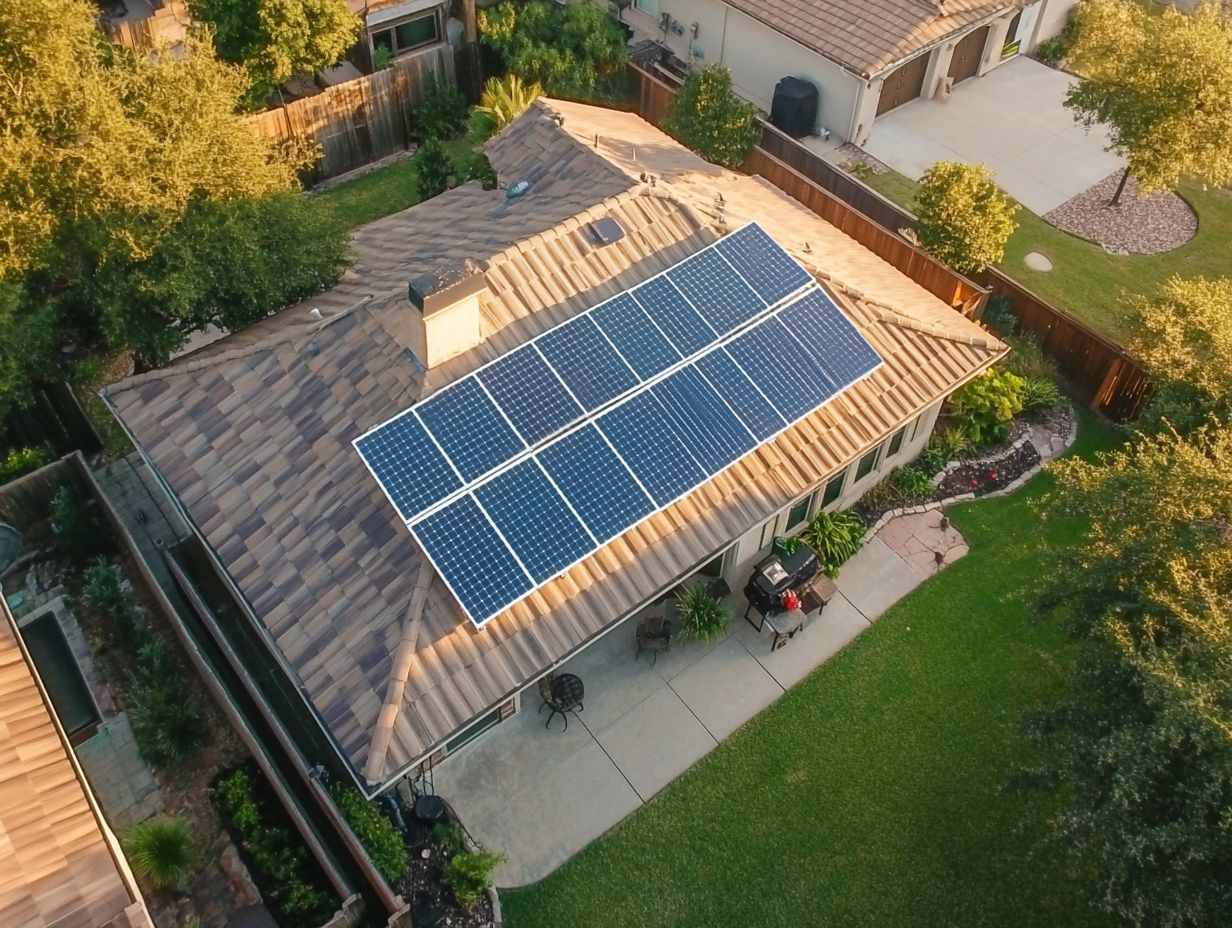
What factors should I consider when choosing the right solar panel for my home?
When choosing the right solar panel, think about your energy needs, budget, roof space, and panel efficiency. Warranties are also important to consider.
What are the different types of solar panels available for residential use?
The three most common types of solar panels for homes are monocrystalline, polycrystalline, and thin-film panels. Each type has unique advantages and disadvantages, so research which one fits your situation best.
How important is panel efficiency when choosing the right solar panel for my home?
Panel efficiency is crucial because it indicates how much energy the panels can convert from sunlight. Higher efficiency panels might cost more but can save you money over time by generating more energy.
What is the average lifespan of a solar panel?
Most solar panels last around 25 to 30 years. While some come with warranties for up to 25 years, it’s wise to consider this when making your choice.
How do I determine how many solar panels I need for my home?
The number of solar panels you need depends on your energy needs, the size and efficiency of the panels, and how much sunlight your area receives. A professional installer can help you find the right number.
Can I install solar panels on a flat roof?
Yes, solar panels can be installed on flat roofs. However, you may need to adjust their angle and direction to maximize sunlight exposure. Consulting with a professional installer is recommended for the best results.

